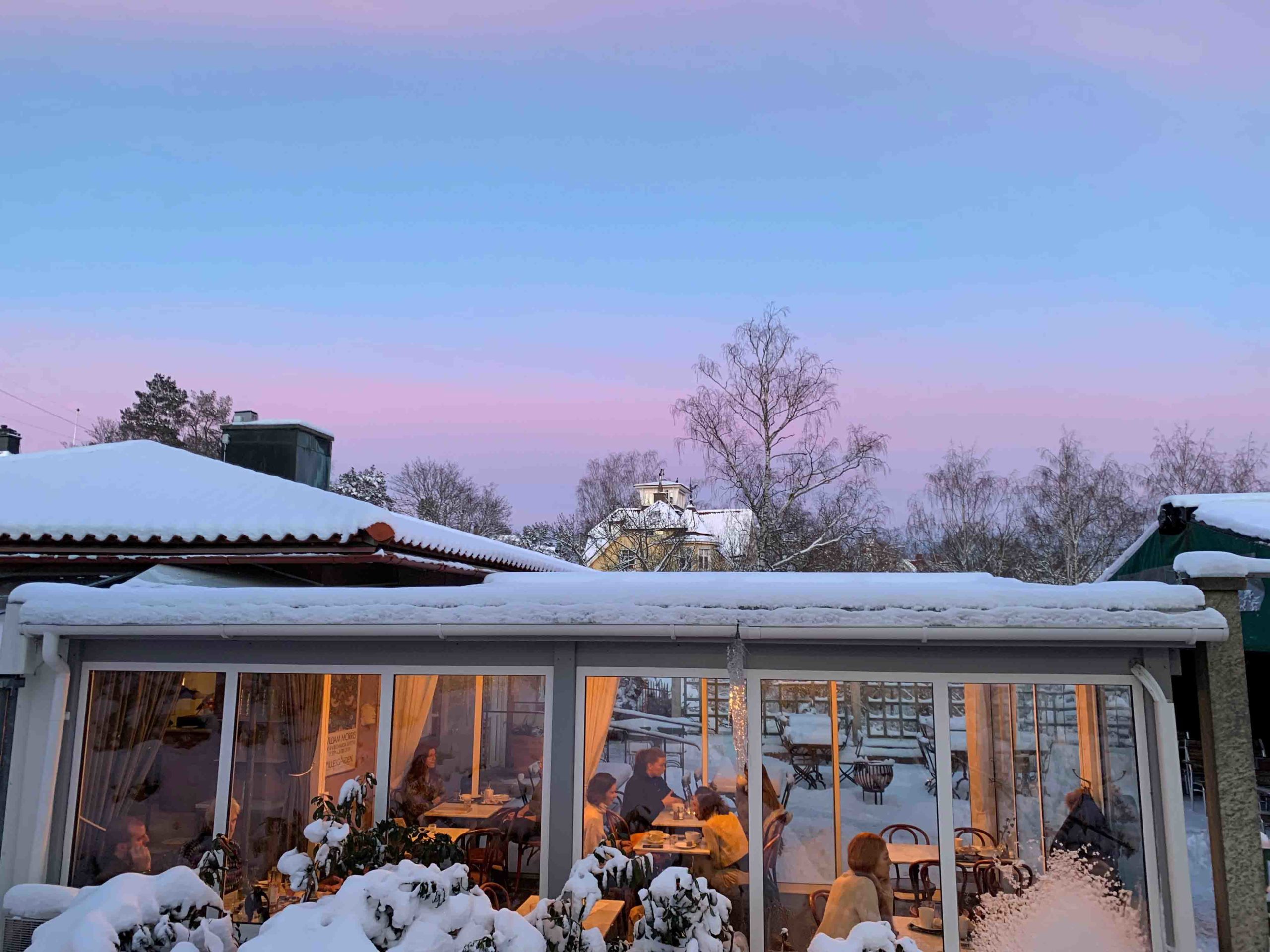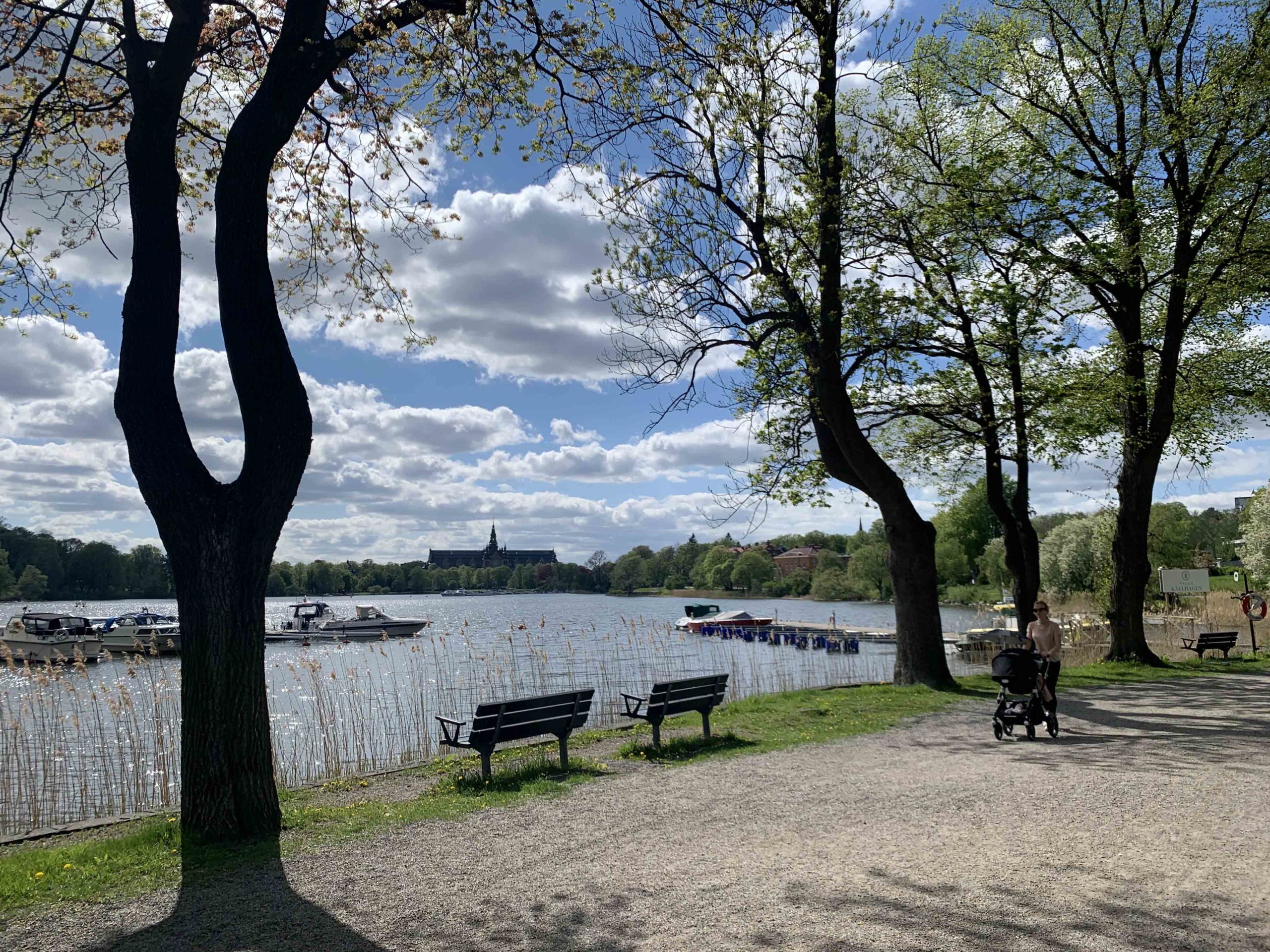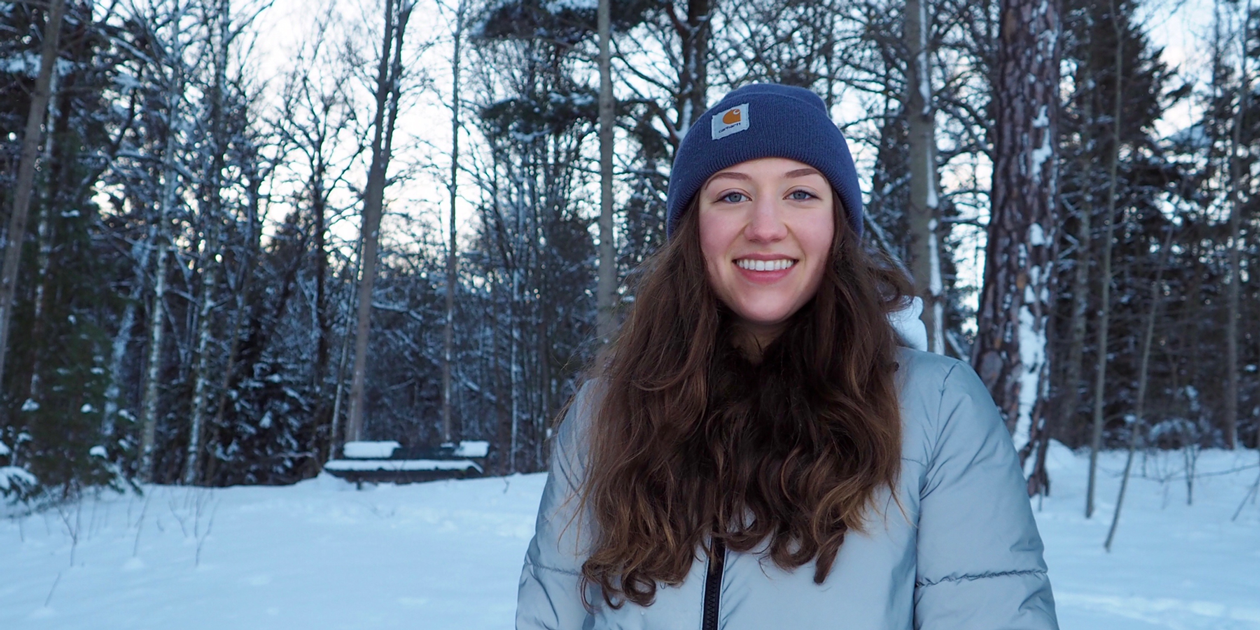Traveling internationally during the pandemic has not been easy for many people, but despite Sweden’s travel ban, Fulbright Scholar Hannah VanBenschoten was able to use a student visa to study in Stockholm. A UW bioengineering Ph.D. student, Hannah flew to Sweden in mid-January 2021 and has been studying at the Karolinska Institute. The institute is one of the medical universities in Stockholm dedicated to reproduction, Hannah’s area of interest. Prior to her time in Sweden, Hannah worked in UW Associate Professor Kim Woodrow’s lab, where she focused on drug delivery for contraception and sexually transmitted infection prevention.
Hannah was awarded the Fulbright grant in 2020. The Fulbright U.S. Student Program is the largest U.S. international exchange program offering grants for U.S. students to undertake individually designed international graduate study projects, advanced research, and teaching in elementary and secondary schools worldwide. During their grant period, Fulbright students participate in a cultural exchange as they live with and learn from their host communities. The Fulbright Program operates in over 160 countries and annually offers about 2,000 grants.
Hannah took some time to talk about her experience studying in Sweden.
What are you working on?
I am working in the department of women and children’s health in a lab under Kristina Gemzell Danielsson, professor and chair of obstetrics and gynecology. The lab focuses on both basic and clinical science related to reproductive function. Since joining the Karolinska Institute, my work is concentrated more on public health and clinical services than it was at UW. Currently, I am doing a clinical retrospective study on how COVID affected abortion by medication in Italy, and a systematic literature review on how COVID has affected services for reproductive and sexual health globally, including all forms of abortion. The research has shown that reproductive care has been more difficult for women because of the pandemic due to financial hardship and a lack of information on how and where to get an abortion.
What’s it like being in Sweden, especially during a pandemic?
 Sweden is unique in how they have approached the pandemic. A lot of my work has been remote; however, masks are not mandatory and are rarely worn. That was one of the biggest culture shocks coming from the U.S. Over time it has shifted a little with more people wearing masks on public transportation, but they aren’t typically worn in stores. There are some restrictions, for example restaurants close at 8 pm, but it hasn’t felt as restrictive as the U.S.
Sweden is unique in how they have approached the pandemic. A lot of my work has been remote; however, masks are not mandatory and are rarely worn. That was one of the biggest culture shocks coming from the U.S. Over time it has shifted a little with more people wearing masks on public transportation, but they aren’t typically worn in stores. There are some restrictions, for example restaurants close at 8 pm, but it hasn’t felt as restrictive as the U.S.
I feel a little more worried about getting COVID. Getting a test is more difficult here. You must have a Swedish social security number, called a person number, to get a COVID test. Sweden has an amazing healthcare system if you have a person number but if you don’t it’s hard to access care.
How is the scholarship helping your career?
The scholarship has helped me to make some important connections in the reproductive and sexual health field. My affiliate here, Kristina, is an incredible researcher and is one of the most cited researchers in that focus area. She has a lot of contacts and connections with research institutes that I’m interested in working for, including the World Health Organization for which I’m also doing some projects. The connections and exposure are quite different from my UW projects.
What brought you to the UW, and specifically the Department of Bioengineering?
I was always interested in global health, specifically reproductive and sexual health. As an undergrad at Boston University, I was part of NARAL Pro-Choice America. We started a reproductive health and policy advocates club. I wanted to apply my interest in biomedical engineering research to public health. UW is by far one of the best programs in bioengineering and global health. When I interviewed there, I got the sense that they had a real emphasis on those fields and there are a lot of interesting research labs focusing on that area. Kim Woodrow’s lab does drug delivery and bioengineering technical research for contraception and sexual health, something I didn’t realize when I was applying to the program, so it ended up being a perfect fit. My interests all aligned at the UW program.
What’s next for you?
I’m coming back to Seattle in the fall to continue my thesis project as a fourth year Ph.D. student. After that, I’m interested in potentially moving back to Sweden because I really love it here. I want to continue to explore the field of sexual and reproductive health. I’m unsure if I want to pursue that from a policy approach or continue with a research focus.
When you aren’t working in Sweden, how do you like to spend your time?
 I love to go for runs in the park. It’s beautiful here even in the winter. There are a lot of rock-climbing gyms, which I enjoy. In a lot of ways Stockholm is similar to Seattle because of the focus on outdoor activities. I live in a co-living community with 50 people in the center of Stockholm. It’s an old hotel that has been converted into separate units, like adult dorms. The community is international where half of the residents are Swedish, and half are from all over the world. Socializing and meeting new people has taken up a lot of my free time. It’s been the most social experience I’ve ever had.
I love to go for runs in the park. It’s beautiful here even in the winter. There are a lot of rock-climbing gyms, which I enjoy. In a lot of ways Stockholm is similar to Seattle because of the focus on outdoor activities. I live in a co-living community with 50 people in the center of Stockholm. It’s an old hotel that has been converted into separate units, like adult dorms. The community is international where half of the residents are Swedish, and half are from all over the world. Socializing and meeting new people has taken up a lot of my free time. It’s been the most social experience I’ve ever had.



